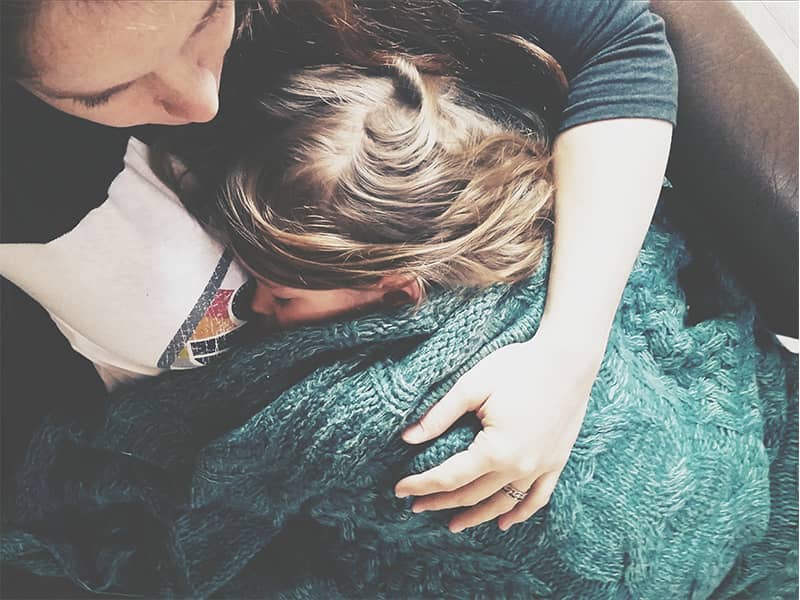On this otherwise ordinary night at the end of July, the men in my life are out under the stars beating drums in a redwood forest.
Okay, actually, I'm the one with the drum. But I thought drumming sounded more dramatic than "the men in my life are out under the stars eating steaks in a redwood forest."
Yesterday, my husband, his best friend, my two brothers-in-law, and five teenage boys packed up the minivans and headed out for what is now the annual Men's Weekend. This tradition began six years ago when our oldest son, Ben, turned thirteen. Puberty was turning Ben inside out, stretching him, changing his voice and his biceps, morphing him into an adult before our eyes. We wanted to find some way to mark this transition, to celebrate this rite of passage by giving him a blessing.
Some men never hear their father's stories or receive their father's blessing. They do not hear their elders say: "We see you. Your life is important. What you say should be heard." Perhaps I am overly sensitized to this. I hear over and over in therapy sessions about what life is like for people who've never received a blessing from their parents. They walk around with an empty space inside, usually looking in all the wrong places for the message that they are good and whole and blessed.
There is no ready-made formula for giving such a blessing. Life in our American melting pot often lacks meaningful rituals. Most of our ancestors' wisdom has been boiled away, replaced with bland consumerism. But by borrowing from one tradition and taking from another, we were able to piece together a ritual in which Ben could be blessed.
That first weekend was six years ago. Since then, three other boys have reached the age of thirteen, and now each of them attends subsequent weekends as one of the elders. On this July night, the fifth boy is receiving his blessing. He is being seen for who he is and is getting the message that who he is matters. He is listening to stories about what it means to be a man and is beginning to understand that his story is part of a larger story. In the telling of the tales, something solid is being made.
I don't think it's an accident that all this is happening under redwood trees. We are fortunate to live near the California coast, where redwoods have grown for twenty million years. These trees have trunks that are incredibly strong, resistant to fire, insects, and disease. They often grow close together, their roots intertwined like fingers, providing them stability despite their great height. I imagine that bits of redwood bark and needles fall down upon this little group of men, getting in hair and tents and shoes. Perhaps these giants of the forest are imparting some part of their great strength, adding depth and breadth and height to those human beings who've come to visit.
All I know is that when the men return, it will seem as if they've internalized the forest. Smelling of smoke and perspiration, my teenage men will wrap their long, branchy arms around my shoulders and say, "It was good." When I ask for more details, they'll just smile, give a little squeeze, and repeat in a deep and rooted voice, "It was good."
I am filled with a deep peace, grateful that my sons have interconnected roots with their older men. My sons know that they'll never be alone; they know that they have men in their lives with whom they can share struggles and joys. I witness this connection in the long, deep hugs and pats on the back that they give one another as they leave to go home.
Like the redwoods, these young men will grow straight and tall. They will take in the blessing and they will blossom, and, in turn, they will bless the world. They already tell me that they will do this ritual for their sons.
I too am blessed.
I am the mother of men.
For the list of questions created for the Men's Weekend, see next page.
Questions for the Men's Weekend
Usually, the men let the thirteen-year-old choose which questions to discuss, and often they end up only addressing two or three of these questions on any one weekend. They also add other questions along the way.
Who are my heroes?
What is my philosophy of life?
What do I feel about work?
What gives meaning to my life?
What are the qualities of my mother I admire? Of my father?
What qualities do I value in a relationship?
What does intimacy mean?
What are my dreams for myself?
What does success mean to me?
What brings me joy?
For what, or whom, would I sacrifice my time, my energy, my health, my life?
What is my idea of power? What is the source of my power?
What are my gifts?
What do I fear?
What is sacred?
Who are my people?
How do I most enjoy life?

